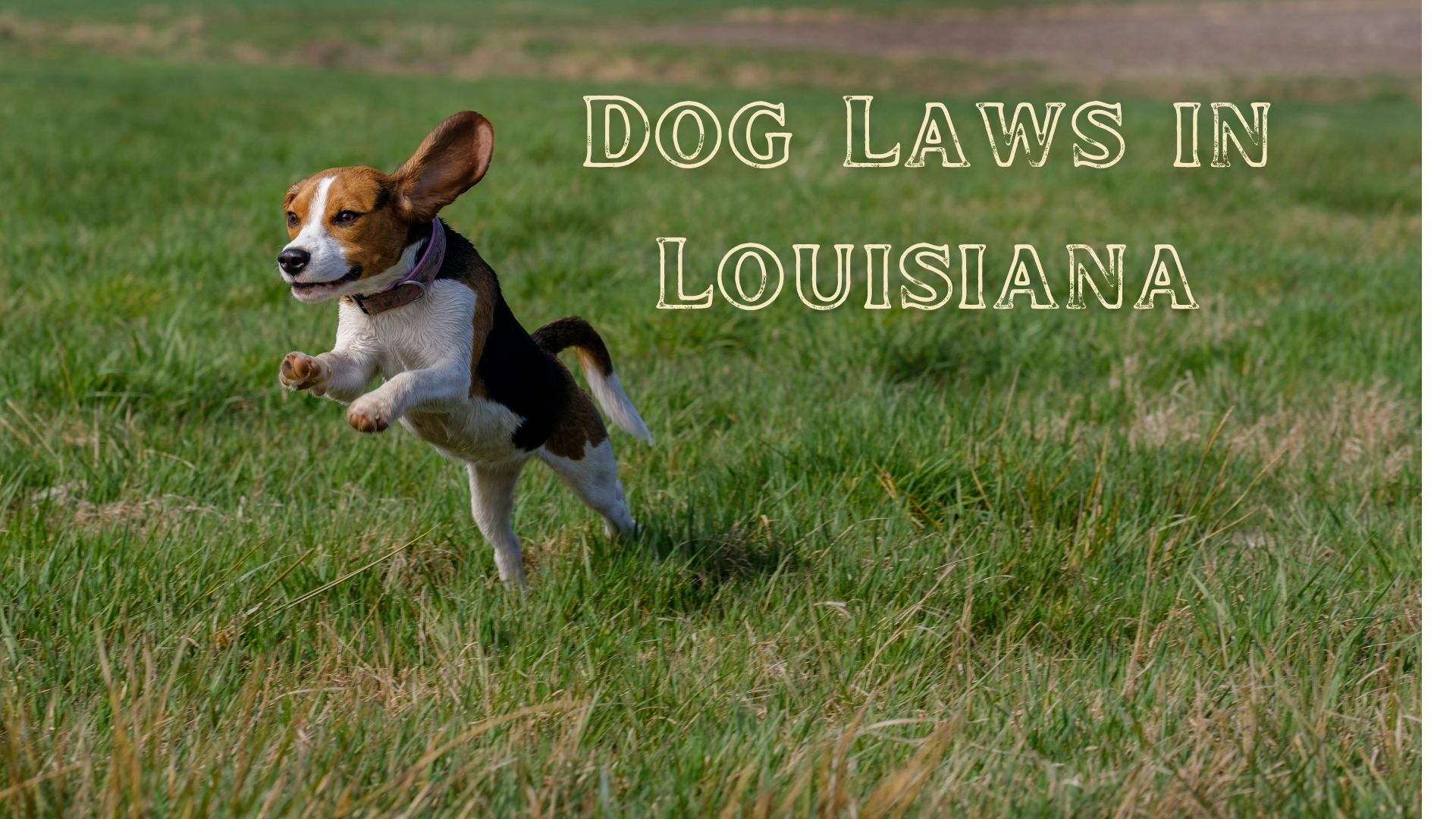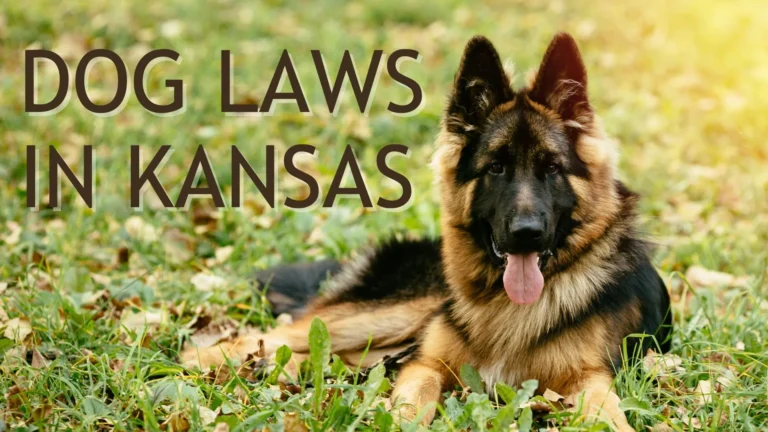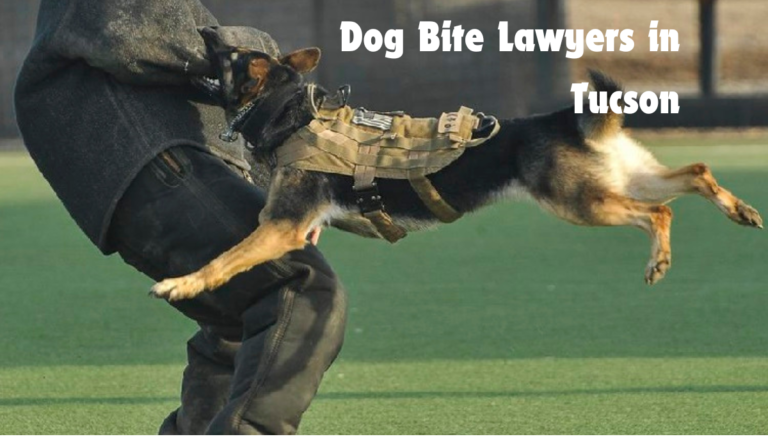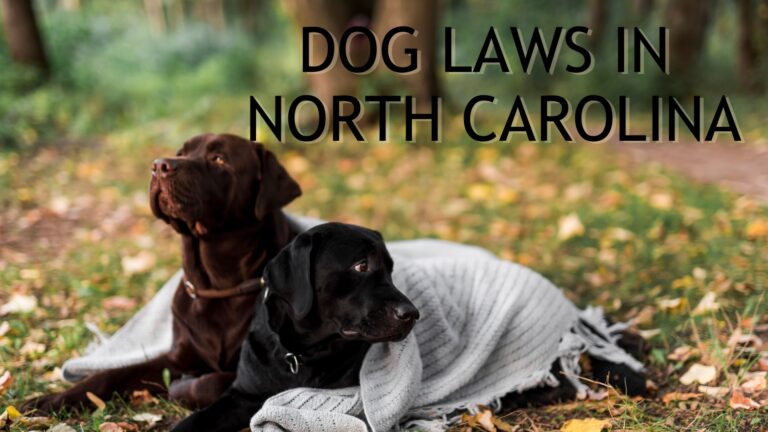Dog Laws in Louisiana
As a dog owner in the United States, with over 85 million canine companions gracing our homes, understanding dog laws is crucial. Not only do these laws vary by state, but they can encompass everything from licensing and vaccination requirements to public access and responsible ownership practices.
Here in Louisiana, I recently welcomed a furry friend into my life, and navigating the legalities of dog ownership has been an eye-opening experience. This guide delves into the different areas of dog law in Louisiana, from the basics of licensing and microchipping to the legalities of leash laws and doggy daycares. By understanding these regulations, we can ensure our furry best friends live happy, healthy, and legally compliant lives in the beautiful state of Louisiana.
Table of Contents
Dog Bite Laws in Louisiana
Louisiana, like many states, prioritizes the safety of both humans and animals. Dog bites can be a serious concern, and understanding the legal landscape surrounding them is essential for dog owners and victims alike. This guide explores Louisiana’s dog bite laws, empowering you to navigate potential incidents and ensure responsible canine companionship.

The Importance of Dog Bite Laws
Dog bite laws serve several crucial purposes:
- Protecting Public Safety: These laws aim to deter dog attacks and hold negligent owners accountable, promoting responsible ownership and reducing the risk of dog bites.
- Providing Compensation for Victims: Victims of dog bites can seek compensation for medical bills, lost wages, and emotional distress through legal channels.
- Encouraging Responsible Ownership: Dog bite laws incentivize owners to properly train, socialize, and secure their dogs, ultimately promoting safer communities for both humans and animals.
Understanding Louisiana’s Dog Bite Laws
Louisiana has a unique approach to dog bite liability, classified as a “strict liability” state with some exceptions. Here’s a breakdown of the key points:
- Strict Liability: Generally, Louisiana dog bite law follows a “strict liability” standard. This means the dog owner is liable for any injuries or damages caused by their dog, regardless of the owner’s knowledge of the dog’s aggressive tendencies. This applies to bites that occur on public or private property.
- Exceptions to Strict Liability: There are some exceptions to strict liability in Louisiana:
- Provocation: If the victim provoked the dog, the owner might not be held liable.
- Trespassing: If the victim was trespassing on private property when bitten, the owner’s liability might be reduced or eliminated.
Important Considerations for Dog Owners
As a dog owner in Louisiana, understanding these key points is crucial:
- Train Your Dog: Proper training goes a long way in preventing dog bites. Enroll your dog in obedience training and socialize them from a young age.
- Leash Laws: Observe leash laws in your area and keep your dog leashed in public spaces. This helps maintain control and prevents altercations with other dogs or people.
- Secure Your Property: Ensure your home and yard are properly fenced to prevent your dog from escaping and potentially biting someone.
- Consider Dog Insurance: Dog bite liability insurance can help cover expenses if your dog bites someone.
What to Do if You’re Bitten by a Dog in Louisiana
If you’re bitten by a dog in Louisiana, here are the recommended steps:
- Seek Medical Attention: Your health is the top priority. Get medical attention immediately and report the bite to animal control.
- Gather Evidence: If possible, take photos of your injuries and the scene of the bite. Try to identify the dog’s owner and any witnesses.
- Consult an Attorney: An experienced personal injury attorney can advise you on your legal rights and options for seeking compensation.
Reputable Dog Training Resources in Louisiana
Investing in proper dog training is crucial. Here are some tips for finding reputable training resources:
- Look for Certified Trainers: Seek trainers certified by organizations like the Certification Council for Professional Dog Trainers (CCPDT).
- Positive Reinforcement Methods: Choose trainers who utilize positive reinforcement methods that are humane and effective.
- Research and Read Reviews: Research different trainers and read reviews from previous clients to ensure a good fit for you and your dog.
Dog Barking and Noise Laws in Louisiana
Living in Louisiana often means enjoying the company of our canine companions. However, excessive dog barking can disrupt the peace and tranquility of a neighborhood. This guide explores Louisiana’s dog barking and noise laws, empowering dog owners and residents to navigate potential conflicts and promote a harmonious environment.
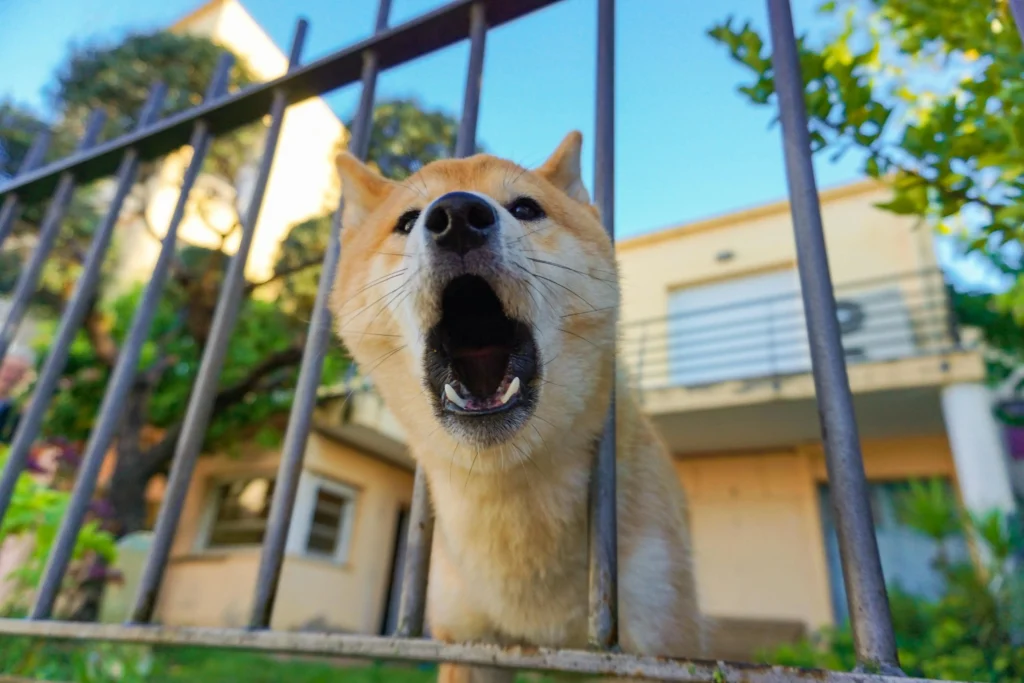
The Importance of Dog Barking and Noise Laws
Dog barking and noise laws serve several critical purposes:
- Maintaining Peace and Quiet: These laws aim to ensure residents can enjoy a peaceful living environment and minimize disruptions caused by excessive dog noise.
- Promoting Responsible Ownership: Regulations encourage dog owners to take steps to control excessive barking, contributing to a more considerate and community-oriented environment.
- Protecting Animal Welfare: Continuous barking can be a sign of stress or anxiety in dogs. These laws encourage addressing the root cause of the barking to ensure canine well-being.
Dog Barking and Noise Ordinances in Louisiana
Louisiana doesn’t have a single, statewide dog barking law. Instead, barking and noise regulations are enforced at the parish or municipal level. Here’s a breakdown of what to expect:
- Local Ordinances: Most parishes and municipalities in Louisiana have ordinances addressing excessive noise, including barking dogs. These ordinances can vary significantly.
- Focus on Duration and Reasonableness: Noise ordinances typically focus on the duration and unreasonableness of the noise, rather than simply the presence of barking.
- Potential Fines: Violating noise ordinances might result in warnings, fines, or even court appearances depending on the severity and frequency of the offense.
Finding Your Local Dog Barking Ordinance
Since Louisiana lacks a statewide law, here’s how to find your local barking ordinance:
- Parish or Municipal Website: Most parish or municipal websites have sections dedicated to codes or ordinances. Search for keywords like “noise ordinance” or “dog barking.”
- Contact Animal Control: Your local animal control office can provide information on the specific barking ordinance applicable to your area.
Strategies for Minimizing Excessive Dog Barking
As a responsible dog owner, here are steps you can take to minimize excessive barking:
- Identify the Cause: Understanding why your dog barks excessively is crucial. Common reasons include boredom, anxiety, territorial behavior, or seeking attention.
- Provide Proper Training: Work with a qualified dog trainer to address the underlying cause of barking and teach your dog alternative communication methods.
- Exercise and Enrichment: Ensure your dog receives enough physical activity and mental stimulation through daily walks, playtime, and interactive toys.
- Desensitization Techniques: If your dog barks at triggers like noises or passersby, gradually expose them to these stimuli in a controlled environment using positive reinforcement techniques.
Resolving Barking Nuisances with Your Neighbor
If a neighbor’s dog barks excessively, here are some steps to consider:
- Communicate Respectfully: Start with a friendly conversation with your neighbor and express your concerns.
- Offer Solutions: Suggest ways they might address the barking, such as providing more exercise or seeking professional training assistance.
- Mediation: If communication doesn’t resolve the issue, consider seeking mediation services through your parish or municipality.
- Filing a Noise Complaint: As a last resort, you might need to file a noise complaint with your local animal control office. However, always prioritize a neighborly approach first.
Finding Reputable Dog Trainers in Louisiana
Investing in proper training can significantly reduce excessive barking. Here are some tips for finding qualified trainers:
- Look for Certified Trainers: Seek trainers certified by organizations like the Certification Council for Professional Dog Trainers (CCPDT).
- Positive Reinforcement Methods: Choose trainers who utilize positive reinforcement methods that are humane and effective.
- Experience with Barking Issues: Look for trainers with experience specifically addressing excessive barking behavior in dogs.
Dog Poop Disposal Laws in Louisiana
Louisiana, known for its vibrant culture and stunning landscapes, also boasts a large population of cherished canine companions. However, pet waste management is crucial for maintaining a clean and healthy environment. This guide explores dog poop disposal laws in Louisiana, empowering dog owners to be responsible pet stewards and contribute to a cleaner, more enjoyable state.

The Importance of Dog Poop Disposal Laws
Dog poop disposal laws serve several key purposes:
- Protecting Public Health: Dog waste can harbor harmful bacteria and parasites that pose health risks to humans, especially children. Proper disposal minimizes these risks.
- Preserving the Environment: Left uncollected, dog waste can pollute waterways and contribute to nutrient overload in ecosystems. Responsible disposal protects our environment.
- Promoting Community Courtesy: Dog waste on sidewalks, parks, and public spaces is not only unpleasant but also disrespectful to fellow residents. Responsible disposal fosters community pride and a cleaner environment.
Understanding Dog Poop Disposal Laws in Louisiana
Louisiana doesn’t have a single, statewide law mandating dog poop disposal. However, most parishes and municipalities have ordinances addressing this issue. Here’s a breakdown of what to expect:
- Local Ordinances: Most Louisiana parishes and municipalities have ordinances requiring dog owners to clean up after their pets in public spaces.
- Fines for Non-Compliance: Violating these ordinances might result in fines or citations. Fines can vary depending on the specific parish or municipality.
- Enforcement: Enforcement of dog poop disposal laws can be handled by animal control officers, park rangers, or other designated authorities.
Finding Your Local Dog Poop Disposal Ordinance
Since Louisiana lacks a statewide law, here’s how to find your local ordinance:
- Parish or Municipal Website: Most parish or municipal websites have sections dedicated to codes or ordinances. Search for keywords like “dog waste disposal” or “animal waste.”
- Contact Animal Control: Your local animal control office can provide information on the specific dog poop disposal ordinance applicable to your area.
Responsible Dog Poop Disposal Practices
Being a responsible dog owner means cleaning up after your furry friend. Here are some essential practices:
- Always Carry Poop Bags: Make it a habit to carry disposable poop bags whenever you’re out with your dog.
- Dispose of Waste Properly: Tie the bag securely after use and dispose of it in a designated waste bin. These are often found in parks and public spaces.
- Leave No Trace: If a designated bin isn’t readily available, double-bag the waste and carry it home for disposal in a lined trash can.
The Benefits of Responsible Dog Poop Disposal
By following responsible dog poop disposal practices, you contribute to a healthier and more enjoyable Louisiana for everyone:
- Reduced Health Risks: Proper disposal minimizes the risk of exposure to harmful bacteria and parasites.
- Cleaner Environment: Regular waste pickup keeps our parks, sidewalks, and green spaces cleaner and more pleasant for everyone.
- Positive Community Image: Responsible dog owners contribute to a more positive perception of dog ownership within communities.
Promoting Responsible Pet Ownership in Louisiana
Spreading awareness about responsible dog poop disposal is crucial. Consider these actions:
- Lead by Example: Always clean up after your dog and encourage others to do the same.
- Support Community Initiatives: Participate in neighborhood clean-up events or support organizations promoting responsible pet ownership.
- Educate Others: Share information about dog poop disposal laws and the importance of responsible pet ownership with friends, family, and fellow dog lovers.
Dog Licensing Laws in Louisiana
Louisiana, a state rich in culture and charm, is also home to a significant population of beloved canine companions. Owning a dog is a privilege, and responsible ownership includes ensuring your furry friend is properly licensed. This guide explores dog licensing laws in Louisiana, empowering you to navigate regulations and maintain legal compliance for your pooch.

The Importance of Dog Licensing
Dog licensing goes beyond just a tag on your dog’s collar. It serves several crucial purposes:
- Identification and Recovery: A dog license provides a unique identifier that can be linked to your contact information. This significantly increases the chances of your dog being returned if lost or stolen.
- Funding for Animal Control: Licensing fees help fund animal control services, including sheltering abandoned animals, enforcing animal cruelty laws, and promoting responsible pet ownership initiatives.
- Tracking Rabies Vaccinations: Dog licensing often verifies that your dog is current on rabies vaccinations, which is essential for public health protection.
- Responsible Ownership: Obtaining a license demonstrates responsible pet ownership and your commitment to your dog’s well-being.
Understanding Dog Licensing Laws in Louisiana
Louisiana has a statewide dog licensing law, but specific details like fees and renewal periods can vary by parish or municipality. Here’s a breakdown of the key points:
- Licensing Requirement: All dogs four months of age and older in Louisiana must be licensed with the parish clerk’s office where you reside.
- License Fees: Licensing fees typically range from $10 to $20 for spayed/neutered dogs and can be higher for unaltered dogs. Some parishes may offer discounts for senior citizens or veterans.
- Renewal Process: Dog licenses typically expire annually and require renewal, with fees potentially increasing for late renewals.
- Proof of Rabies Vaccination: During the licensing process, you may need to provide proof of current rabies vaccination for your dog.
Finding Your Local Dog Licensing Information
To access specific details about licensing requirements, fees, and renewal procedures in your area, you can explore these resources:
- Parish Clerk’s Office Website: Most parish clerk’s offices have websites listing information on dog licensing procedures and fees.
- State of Louisiana Department of Agriculture and Forestry (LDAF) Website
- Contact your Local Animal Control Office: Your local animal control office can provide information on dog licensing requirements and processes in your area.
Benefits of Dog Licensing for Responsible Owners
Obtaining a dog license not only fulfills legal requirements but also offers several benefits for responsible pet owners:
- Peace of Mind: Knowing your dog is licensed increases the chances of a safe return if they become lost.
- Reduced Fees: Many parishes offer discounted fees for licensed dogs compared to impounded unlicensed dogs.
- Supporting Animal Welfare: Licensing fees contribute to vital services provided by animal control, ultimately benefiting all animals in the community.
- Demonstrating Responsible Ownership: A valid dog license shows you’re a responsible pet owner committed to your dog’s well-being and community safety.
Penalties for Non-Compliance
Failure to license your dog in Louisiana can result in fines and other penalties. These can vary depending on the parish or municipality but may include:
- Fines: Fines for unlicensed dogs can range from $25 to $100 or more.
- Impoundment: Unlicensed dogs may be impounded by animal control and require payment of fees and fines for retrieval.
- Late Fees: Renewing your dog’s license after the expiration date often incurs late fees.
Dog Leash Laws in Louisiana
Louisiana, with its vibrant culture and scenic landscapes, is a haven for both humans and their canine companions. However, ensuring a harmonious coexistence requires responsible pet ownership. Dog leash laws play a crucial role in promoting safety and respect within communities. This guide delves into dog leash laws in Louisiana, empowering dog owners to navigate regulations and ensure their furry friends have safe and enjoyable outings.

The Importance of Dog Leash Laws
Dog leash laws serve several crucial purposes:
- Public Safety: Leashes provide control over your dog, minimizing the risk of bites or altercations with other dogs or people, especially in public spaces.
- Protecting Your Dog: Leashes prevent your dog from running into traffic, approaching dangerous situations, or getting lost.
- Respecting Others: Keeping your dog leashed demonstrates courtesy to fellow residents who might be uncomfortable around unleashed animals.
- Promoting Responsible Ownership: Adhering to leash laws signifies responsible pet ownership and contributes to a peaceful community environment.
Understanding Dog Leash Laws in Louisiana
Louisiana doesn’t have a single, statewide dog leash law. Instead, leash regulations are established and enforced at the parish or municipal level. Here’s a breakdown of what to expect:
- Local Ordinances: Most parishes and municipalities in Louisiana have ordinances requiring dogs to be leashed in public spaces. These ordinances can vary in specifics.
- Leash Length Restrictions: Leash length restrictions might be specified in the local ordinance. Common leash lengths allowed range from six feet to ten feet.
- Designated Off-Leash Areas: Some parishes or municipalities might have designated dog parks or off-leash areas where dogs can run freely under your supervision.
Finding Your Local Dog Leash Ordinance
Since Louisiana lacks a statewide law, here’s how to find your local leash ordinance:
- Parish or Municipal Website: Most parish or municipal websites have sections dedicated to codes or ordinances. Search for keywords like “dog leash” or “animal control.”
- Contact Animal Control: Your local animal control office can provide information on the specific dog leash ordinance applicable to your area.
Responsible Leash Use Practices
Beyond simply having a leash, responsible use is crucial. Here are some key practices to follow:
- Use a Sturdy Leash and Collar: Ensure the leash and collar are appropriate for your dog’s size and strength.
- Maintain Control: Always maintain slack-free control over your dog’s leash to prevent sudden lunges or pulling.
- Be Aware of Your Surroundings: Pay attention to other dogs, children, and people walking by to avoid any potential conflicts.
- Pick Up After Your Dog: Leash laws often coincide with pet waste disposal regulations. Always carry poop bags and dispose of waste properly.
Exceptions to Dog Leash Laws
There might be some exceptions to leash laws in certain situations:
- Private Property: With the property owner’s permission, your dog might be unleashed on private property.
- Hunting or Training: Leash laws might not apply in designated hunting areas or during controlled training sessions.
Always check with your local animal control office for specific exceptions applicable to your area.
The Benefits of Following Dog Leash Laws
Abiding by dog leash laws offers numerous benefits for both you and your canine companion:
- Promotes Safety: Leashes significantly reduce the risk of bites, accidents, and lost dogs.
- Increases Enjoyable Outings: A well-behaved dog on a leash allows you and your furry friend to have more pleasant experiences in public spaces.
- Demonstrates Responsible Ownership: Following leash laws portrays you as a responsible pet owner who prioritizes public safety and courtesy.
- Builds Trust with Your Dog: Proper leash training strengthens your bond with your dog through clear communication and control.
Dangerous Dog Laws in Louisiana
Louisiana, known for its rich culture and vibrant cities, is also home to a large population of cherished canine companions. However, ensuring public safety requires responsible pet ownership. This guide delves into dangerous dog laws in Louisiana, empowering dog owners to understand their responsibilities and promote a safe environment for everyone.

What are Dangerous Dogs?
Louisiana law defines a “dangerous dog” based on behavior, not breed. Here’s how a dog might be classified as dangerous:
- Unprovoked Bites: Any dog that, when unprovoked, bites, injures, or inflicts serious injury to a human being or domestic animal, either off the owner’s property or on unfenced private property accessible to the public, on two separate occasions within a 36-month period.
- Threatening Behavior: A dog that exhibits threatening behavior, such as growling, snapping, or chasing, in a way that a reasonable person would believe could result in serious injury. This often requires documented evidence from animal control officers or witnesses.
Louisiana’s Dangerous Dog Laws
Louisiana follows a two-tiered system for addressing dangerous dogs:
- Dangerous Dog Designation: Following an incident or complaint, an animal control officer might initiate proceedings to declare a dog dangerous. A court hearing determines the dog’s designation after considering evidence and witness testimonies.
- Restrictions and Consequences: If a dog is declared dangerous, the court will impose specific restrictions on the owner and the dog. These may include:
- Muzzle Requirement: The dog might be required to wear a muzzle in public spaces.
- Secure Enclosure: The owner may be required to confine the dog in a secure enclosure that meets specific regulations.
- Warning Signage: The owner might need to post signs around the enclosure clearly stating “Beware of Dog” or “Dangerous Dog.”
- Potential Euthanasia: In severe cases, the court might order euthanasia of the dog, particularly if the threat to public safety is deemed significant.
Important Considerations for Dog Owners
As a responsible dog owner in Louisiana, understanding these key points is crucial:
- Socialize and Train Your Dog: Early socialization and proper training significantly reduce the risk of aggressive behavior.
- Comply with Leash Laws: Always keep your dog leashed in public spaces to maintain control and prevent altercations.
- Secure Your Property: Ensure your home and yard are properly fenced to prevent your dog from escaping and potentially endangering others.
- Report Dog Bites Immediately: If your dog bites someone, report the incident to animal control immediately.
What to Do if You Encounter a Dangerous Dog
If you encounter a dog exhibiting threatening behavior, here are some steps to follow:
- Remain Calm and Avoid Eye Contact: Sudden movements or eye contact can escalate the situation.
- Retreat Slowly and Avoid Running: Running might trigger a chase response in the dog.
- Seek Shelter: If possible, safely enter a building or climb a fence to get away from the dog.
- Report the Incident: Immediately report the incident to animal control to ensure proper investigation and action.
Finding Reputable Dog Trainers in Louisiana
Investing in proper training can significantly reduce the risk of dangerous behavior in your dog. Here are some tips for finding qualified trainers:
- Look for Certified Trainers: Seek trainers certified by organizations like the Certification Council for Professional Dog Trainers (CCPDT).
- Positive Reinforcement Methods: Choose trainers who utilize positive reinforcement methods that are humane and effective.
- Experience with Behavioral Issues: Look for trainers with experience addressing aggression and other behavioral problems in dogs.
Dog Health and Welfare Laws in Louisiana
Louisiana, a state brimming with culture and charm, is also home to a vast population of beloved canine companions. As a responsible dog owner, ensuring your furry friend’s health and welfare is paramount. This guide explores dog health and welfare laws in Louisiana, empowering you to understand your legal obligations and provide the best possible care for your dog.

The Importance of Dog Health and Welfare Laws
Dog health and welfare laws serve several critical purposes:
- Animal Cruelty Prevention: These laws prohibit acts of intentional cruelty, neglect, or abandonment that inflict suffering on dogs.
- Maintaining Minimum Care Standards: They establish basic care requirements owners must provide for their dogs, including food, water, shelter, and veterinary care.
- Promoting Public Safety: Ensuring healthy and properly cared-for dogs minimizes risks associated with bites, aggression, or the spread of diseases.
- Respectful Pet Ownership: These laws encourage responsible ownership that prioritizes the well-being of our canine companions.
Key Provisions in Louisiana’s Dog Health and Welfare Laws
While Louisiana doesn’t have a single, comprehensive dog health and welfare law, several regulations address different aspects of canine care. Here’s a breakdown of some key areas:
- Animal Cruelty: Louisiana Revised Statutes Title 14, Chapter 18 (La. R.S. 14:18) defines and prohibits animal cruelty, including intentional infliction of pain, suffering, or death, deprivation of necessary food or water, or abandonment.
- Veterinary Care: While not explicitly mandated by law, ensuring your dog receives necessary veterinary care is considered a fundamental responsibility of ownership.
- Tethering and Confinement: There are no statewide laws on tethering or confinement duration. However, some parishes or municipalities might have ordinances regulating tethering practices or requiring proper shelter for outdoor dogs.
- Breeding Regulations: Louisiana doesn’t have specific commercial breeding regulations. However, responsible breeding practices that prioritize the health and well-being of breeding dogs are essential.
- Microchipping: Microchipping is not mandatory in Louisiana, but it’s highly recommended. A microchip significantly increases the chances of your dog being returned if lost or stolen.
Local Dog Health and Welfare Ordinances
Since Louisiana lacks a single, statewide law, explore these resources to find specific ordinances in your area:
- Parish or Municipal Website: Most parish or municipal websites have sections dedicated to codes or ordinances. Search for keywords like “animal cruelty,” “tethering,” or “dog welfare.”
- Contact Animal Control: Your local animal control office can provide information on any animal cruelty or welfare ordinances applicable within your jurisdiction.
Responsible Ownership Practices for Dog Health and Welfare
Beyond legal requirements, responsible dog ownership goes a long way in ensuring your dog’s well-being:
- Provide Nutritious Food and Clean Water: Feed your dog a balanced diet appropriate for their age, breed, and activity level. Ensure they have access to clean, fresh water at all times.
- Schedule Regular Veterinary Checkups: Regular veterinary checkups are crucial for preventive care, early detection of potential health issues, and ensuring your dog receives necessary vaccinations.
- Offer Proper Exercise and Stimulation: Dogs need daily exercise to stay physically and mentally healthy. Provide activities like walks, playtime, and mental stimulation through training or interactive toys.
- Maintain a Clean and Safe Living Environment: Provide your dog with clean and comfortable living space, free from hazards and potential dangers.
- Practice Responsible Breeding: If you choose to breed your dog, prioritize responsible breeding practices that ensure the health and well-being of both parent dogs and puppies.
Dog Public Access Laws in Louisiana
Louisiana, a state rich in history and joie de vivre, welcomes not just humans but also their furry companions. However, navigating public spaces with your dog requires understanding dog public access laws. This guide explores regulations and considerations for bringing your canine friend along on your Louisiana adventures.
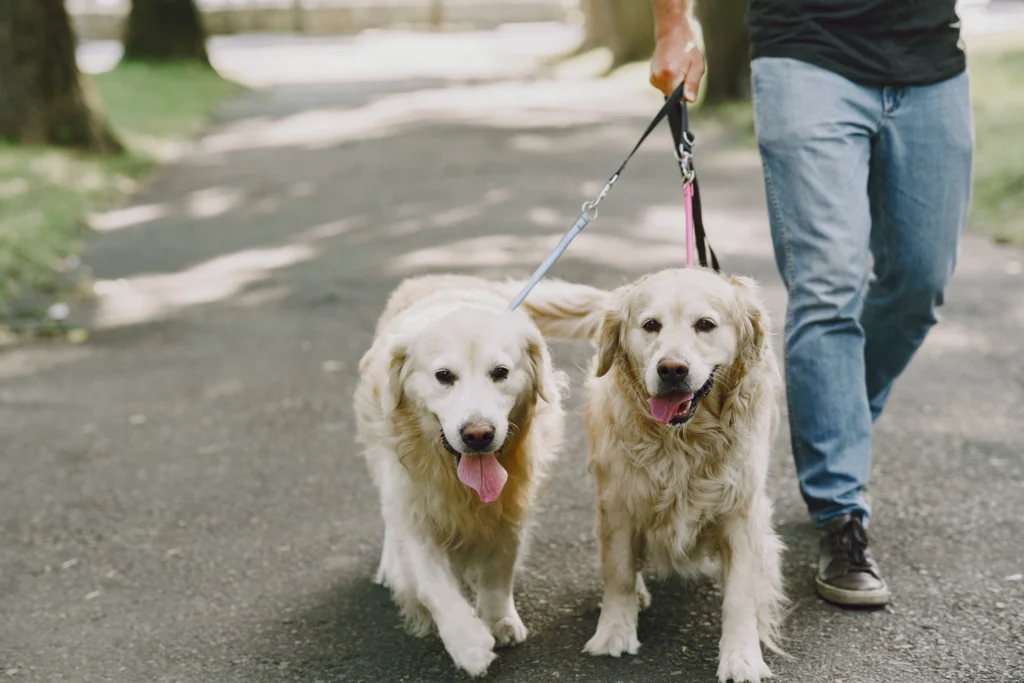
The Importance of Dog Public Access Laws
Dog public access laws serve several key purposes:
- Balancing Access and Safety: These laws aim to strike a balance between allowing well-behaved dogs in public spaces and ensuring the safety and comfort of all patrons.
- Promoting Responsible Ownership: Regulations encourage responsible dog owners to ensure their dogs are properly trained and socialized before venturing into public areas.
- Fostering Community Inclusion: Dog-friendly establishments and events create opportunities for dog owners to integrate their furry family members into their social lives.
- Boosting Local Businesses: Dog-friendly policies can attract dog owners and their spending to local businesses, contributing to the economy.
Understanding Dog Public Access Laws in Louisiana
Louisiana doesn’t have a single, statewide law governing dog access in public spaces. Instead, the authority to regulate public access for dogs falls on individual parishes and municipalities. Here’s what to expect:
- Local Ordinances: Most parishes and municipalities in Louisiana have ordinances outlining regulations for dogs in public spaces, such as parks, restaurants, and stores. These can vary significantly.
- Restrictions and Requirements: Local ordinances might establish restrictions on dog access based on factors like breed, size, or leash requirements.
- Licensing and Vaccination Requirements: Some parishes or municipalities might require dogs to be licensed and current on vaccinations before entering specific public spaces.
Finding Local Dog Public Access Ordinances
Since Louisiana lacks a centralized law, here’s how to find public access ordinances in your area:
- Parish or Municipal Website: Most parish or municipal websites have sections dedicated to codes or ordinances. Search for keywords like “dog access,” “pet policies,” or “public spaces.”
- Contact Parks and Recreation Department: The parks and recreation department in your area might have specific guidelines for dog access in parks and trails.
- Contact Local Businesses: Businesses often establish their own pet policies. Contact them directly to inquire about their dog-friendliness.
General Considerations for Dog-Friendly Public Spaces
While specific regulations vary, some general considerations apply when bringing your dog to public spaces in Louisiana:
- Leash Laws: Most public spaces require dogs to be leashed, with leash length restrictions potentially specified in the local ordinance.
- Waste Management: Responsible dog owners always carry poop bags and dispose of waste properly in designated bins.
- Voice Control: Maintain good voice control over your dog to ensure they don’t disrupt other patrons or create safety hazards.
- Dog Etiquette: Be a considerate dog owner. If your dog exhibits any signs of aggression, barking excessively, or discomfort, it’s best to remove them from the situation.
Finding Dog-Friendly Public Spaces in Louisiana
Several online resources can help you find dog-friendly places in Louisiana:
- BringFido: Searchable database of dog-friendly businesses and locations
- Rover: Website with a section dedicated to dog-friendly parks and activities
- Local Social Media Groups: Join Facebook groups or online forums dedicated to dog owners in your area for recommendations on dog-friendly spots.
Traveling with Your Dog in Louisiana
If you’re planning a trip with your canine companion, consider these factors:
- Dog-Friendly Accommodations: Many hotels and vacation rentals in Louisiana offer pet-friendly options. Research and book pet-friendly accommodations in advance.
- Outdoor Activities: Louisiana boasts stunning natural beauty. Explore dog-friendly hiking trails, parks, and beaches where you can enjoy adventures with your furry friend.
- Transportation: Public transportation options in Louisiana might vary regarding dog policies. Research beforehand if you plan to use buses or trains.
Benefits of Dog-Friendly Public Access
Expanding dog-friendly public access offers numerous benefits:
- Stronger Human-Animal Bond: Bringing your dog along on outings strengthens the bond between you and your furry companion.
- Increased Physical Activity: Exploring dog-friendly parks and trails encourages both you and your dog to get regular exercise.
- Socialization Opportunities: Dog-friendly public spaces provide opportunities for dogs to socialize with other canine companions.
- Enhanced Community Vibrancy: Welcoming well-behaved dogs into public spaces contributes to a more vibrant surrounding.
Dog Travel and Transportation Laws in Louisiana
Louisiana, with its vibrant culture and scenic landscapes, is a haven for both humans and their canine companions. Whether embarking on a weekend getaway or a long-distance adventure, ensuring your furry friend travels safely and legally is crucial. This guide explores dog travel and transportation laws in Louisiana, empowering you to plan a smooth and compliant journey with your pooch.

The Importance of Dog Travel and Transportation Laws
Dog travel and transportation laws serve several key purposes:
- Animal Safety: Regulations aim to ensure dogs are transported in a safe and humane manner, minimizing stress and potential injuries during travel.
- Public Health Protection: Vaccine requirements for traveling dogs help prevent the spread of diseases between animals.
- Responsible Ownership: Understanding and following travel regulations demonstrates responsible pet ownership and respect for public health.
- Preventing Lost Pets: Microchipping and proper identification can significantly increase the chances of a lost dog being reunited with its owner during travel.
Understanding Dog Travel and Transportation Laws in Louisiana
Louisiana doesn’t have a single, comprehensive law governing dog travel and transportation. Regulations can vary depending on the mode of transportation you choose. Here’s a breakdown of key considerations:
- Traveling by Car: There are no specific laws in Louisiana regarding securing dogs while traveling in a car. However, cruelty to animals laws apply. Unsafe transport that could cause injury or distress to your dog would be considered a violation.
- Public Transportation: Policies on dog travel on public transportation like buses or trains can vary significantly. Always check with the specific provider for their pet policies, including size restrictions, fees, and leash requirements.
- Traveling by Air: Airlines have established regulations for transporting dogs in cargo or cabins. These typically involve age restrictions, breed restrictions, health certificate requirements, and specific travel crates.
Preparing Your Dog for Travel
Beyond legal requirements, ensuring your dog is comfortable and prepared for travel is essential:
- Schedule a Vet Checkup: Ensure your dog is healthy and current on all vaccinations before travel. Obtain a health certificate if required by airlines or other transportation providers.
- Microchip Your Dog: Microchipping significantly increases the chances of your dog being reunited with you if lost while traveling.
- Practice Crate Training: If your dog will be traveling in a crate, acclimate them to it well before the trip.
- Prepare Travel Essentials: Pack food, water, waste bags, medications, familiar toys, and a leash for your dog.
- Consider Travel Anxiety: Talk to your veterinarian if your dog experiences anxiety during travel. They might recommend calming aids or anti-anxiety medication.
Finding Specific Dog Travel Regulations
Here are some resources to help you find specific regulations for your chosen mode of transportation:
- Louisiana Department of Agriculture and Forestry (LDAF): Search for “animal health” or “pet travel”
- Individual Airline Websites: Each airline has a dedicated section on their website outlining pet travel policies and requirements.
- Public Transportation Providers: Bus and train companies will have information on their websites regarding pet policies and any associated fees.
Additional Considerations for Dog Travel
Here are some additional factors to consider when traveling with your dog in Louisiana:
- Destination Laws: Research dog regulations in your travel destination. Leash laws, public access restrictions, and potential quarantine requirements might exist.
- Climate Variations: Be mindful of temperature extremes in your destination and pack accordingly to ensure your dog’s comfort.
- Pet-Friendly Accommodations: Book pet-friendly accommodations that welcome your furry friend and provide a comfortable space for your stay.
Benefits of Traveling with Your Dog
Traveling with your dog can be a rewarding experience, fostering stronger bonds and creating lasting memories:
- Shared Adventures: Traveling together allows you to share new experiences and explore new places with your beloved canine companion.
- Increased Physical Activity: Exploring new destinations often involves walking and outdoor activities, benefiting both you and your dog.
- Stress Relief: Spending time with your dog can be a calming experience for both of you, even while traveling.
- Enhanced Socialization: Traveling exposes your dog to new environments and people, promoting positive socialization experiences.
Dog Housing and Accommodation Laws in Louisiana
Louisiana, with its rich culture and diverse landscapes, welcomes not just residents but also their canine companions. However, navigating the world of pet-friendly housing requires an understanding of dog housing and accommodation laws. This guide delves into the legalities of renting or owning a home with a dog in Louisiana, empowering you to find a comfortable and compliant living space for yourself and your furry friend.

The Importance of Dog Housing and Accommodation Laws
Dog housing and accommodation laws play a crucial role in promoting responsible pet ownership and ensuring fair treatment for both tenants and landlords. Here’s why these laws are important:
- Protection for Tenants with Dogs: These laws prevent discrimination against responsible dog owners seeking housing.
- Ensuring Responsible Ownership: Regulations encourage responsible pet owners who prioritize proper training, waste management, and minimizing damage.
- Maintaining Property Value: Clear guidelines regarding dog breeds, sizes, and limitations can help maintain property value.
- Fostering a Pet-Friendly Community: Laws promoting responsible pet ownership contribute to a more inclusive environment for dog owners and their furry companions.
Understanding Dog Housing and Accommodation Laws in Louisiana
Louisiana doesn’t have a single, statewide law governing dog housing and accommodation. The primary legislation comes from the federal Fair Housing Act (FHA). Here’s a breakdown of key points:
- The Fair Housing Act (FHA): This federal law prohibits discrimination based on disability, which can include having a service animal (dog). Landlords cannot deny housing to individuals with disabilities because of their service animals.
- Reasonable Accommodation: Landlords are required to make reasonable accommodations for service animals, such as waiving pet fees or breed restrictions. However, they can deny accommodation if the animal poses a direct threat to the health or safety of others.
- Emotional Support Animals (ESAs): While not explicitly covered by the FHA, some Louisiana parishes or municipalities might have ordinances recognizing ESAs. However, landlords generally have more discretion regarding ESAs compared to service animals.
Finding Local Dog Housing Ordinances
Since Louisiana lacks a comprehensive state law, consider these resources to find specific ordinances in your area:
- Parish or Municipal Website: Most parish or municipal websites have sections dedicated to codes or ordinances. Search for keywords like “pet policies,” “rental regulations,” or “animal control.”
- Tenant Rights Organizations: Local tenant rights organizations can provide information on dog-related housing laws and tenant rights.
Considerations for Renting with a Dog in Louisiana
Even with the FHA protections, some considerations apply when renting with a dog in Louisiana:
- Pet Policies: Always review the lease agreement and any pet policies established by the landlord. These might specify breed restrictions, size limitations, or additional pet fees.
- Screening Procedures: Landlords might have pet screening procedures to assess your dog’s temperament and behavior. Be prepared to provide documentation like vaccination records or references.
- Deposit Considerations: Some landlords might require a separate pet deposit in addition to the regular security deposit.
Finding Dog-Friendly Housing in Louisiana
Here are some resources to help you find dog-friendly housing options in Louisiana:
- Apartment Search Websites: Several apartment search websites allow you to filter results based on pet-friendly options.
- Local Community Forums: Online forums or social media groups dedicated to dog owners in your area might have recommendations for dog-friendly rentals.
- Contact Property Management Companies: Inquire directly with property management companies about their pet policies and availability of dog-friendly units.
Owning a Home with a Dog in Louisiana
While there are no specific state-level restrictions on dog ownership within private residences, some considerations exist:
- Homeowner Association (HOA) Rules: If your home is part of a homeowners’ association (HOA), review their CC&Rs (Covenants, Conditions, and Restrictions) for any regulations concerning dog ownership, such as breed restrictions or noise limitations.
- Municipal Ordinances: Some municipalities might have ordinances restricting the number of dogs allowed per household or requiring specific licensing for dogs.
Responsible Dog Ownership in Your Home
Regardless of renting or owning, responsible dog ownership is paramount:
- Proper Training: Train your dog to be well-behaved and minimize disruptive behavior within your living space.
- Waste Management: Always clean up after your dog both inside and outside your home.
- Respectful Noise Levels: Ensure your dog’s barking or vocalizations don’t disturb neighbors.
- Preventative Maintenance: Address any potential damage caused by your dog promptly to maintain the property.
Dog Adoption and Sale Laws in Louisiana
Louisiana, known for its vibrant culture and irresistible cuisine, is also a state where many people share their lives with cherished canine companions. Whether you’re considering adopting a dog from a shelter or rescue or purchasing one from a breeder, understanding Louisiana’s dog adoption and sale laws is crucial. This guide explores the legalities involved in welcoming a dog into your home, ensuring a responsible and ethical experience.

The Importance of Dog Adoption and Sale Laws
Dog adoption and sale laws serve several key purposes:
- Animal Welfare Protection: These laws aim to protect dogs from neglect, abuse, and inhumane treatment throughout the adoption or sale process.
- Responsible Breeding Practices: Regulations encourage responsible breeding practices that prioritize the health and well-being of breeding dogs and puppies.
- Consumer Protection: Laws provide some level of protection for consumers purchasing dogs, ensuring transparency and addressing potential issues.
- Promoting Responsible Pet Ownership: Regulations encourage responsible pet ownership by requiring proper licensing, vaccinations, and adherence to minimum care standards.
Understanding Dog Adoption Laws in Louisiana
Louisiana has a large network of animal shelters and rescue organizations dedicated to finding loving homes for homeless dogs. Here’s what to expect when adopting a dog in Louisiana:
- Licensing Requirements: All dogs in Louisiana, regardless of age or source, must be licensed with the local parish or municipality.
- Vaccination Requirements: Shelters and rescues typically require adopted dogs to be up-to-date on essential vaccinations before going home.
- Spay/Neuter Requirements: Many shelters and rescues spay or neuter dogs before adoption to help control pet overpopulation.
- Adoption Fees: Adoption fees vary but typically cover the cost of vaccinations, spaying/neutering, microchipping, and other essential care received by the dog at the shelter or rescue.
Finding Reputable Dog Adoption Organizations
Here are some resources to help you find reputable dog adoption organizations in Louisiana:
- Louisiana SPCA website
- The Humane Society of the United States (HSUS): Search for Louisiana shelters and rescues
- Petfinder: Searchable database of adoptable pets from shelters and rescues across the country
The Benefits of Dog Adoption
Choosing to adopt a dog from a shelter or rescue offers numerous advantages:
- Saving a Life: You’re providing a loving home to a dog in need, potentially saving them from euthanasia.
- Reduced Costs: Adoption fees are typically lower than purchasing a dog from a breeder.
- Variety of Breeds: Shelters and rescues house dogs of all breeds, ages, and personalities.
- Second Chance at Happiness: Many adopted dogs thrive in their new homes, forming strong bonds with their adoptive families.
Dog Sale Laws in Louisiana
If you’re considering purchasing a dog from a breeder in Louisiana, these key points are essential:
- Breeder Licensing: Louisiana doesn’t require commercial dog breeders to be licensed by the state. However, some parishes or municipalities might have local ordinances regulating commercial breeding kennels.
- USDA Licensing: For breeders selling dogs to pet stores or for resale, a USDA (United States Department of Agriculture) license is required under the Animal Welfare Act.
- Consumer Protection: Louisiana doesn’t have specific consumer protection laws for dog sales. However, general contract law principles apply, so ensure you have a written agreement with the breeder outlining details like breed, health guarantees, and purchase price.
Reputable Dog Breeders in Louisiana
Here are some resources to help you find reputable dog breeders in Louisiana:
- American Kennel Club (AKC) Marketplace Website: Search for breeders by breed and location
- Louisiana Kennel Club: [invalid URL removed] (Breeder listings might be available)
- National Club Breeder Directories: Many national breed clubs maintain directories of reputable breeders who adhere to breed standards and ethical breeding practices.
Dog Park and Recreation Laws in Louisiana
Louisiana, a state brimming with joie de vivre and rich cultural heritage, welcomes not just humans but also their furry companions. However, navigating dog-friendly parks and recreation areas requires understanding the legalities and responsible dog park etiquette. This guide delves into dog park and recreation laws in Louisiana, empowering you to enjoy safe and enjoyable outings with your canine friend.
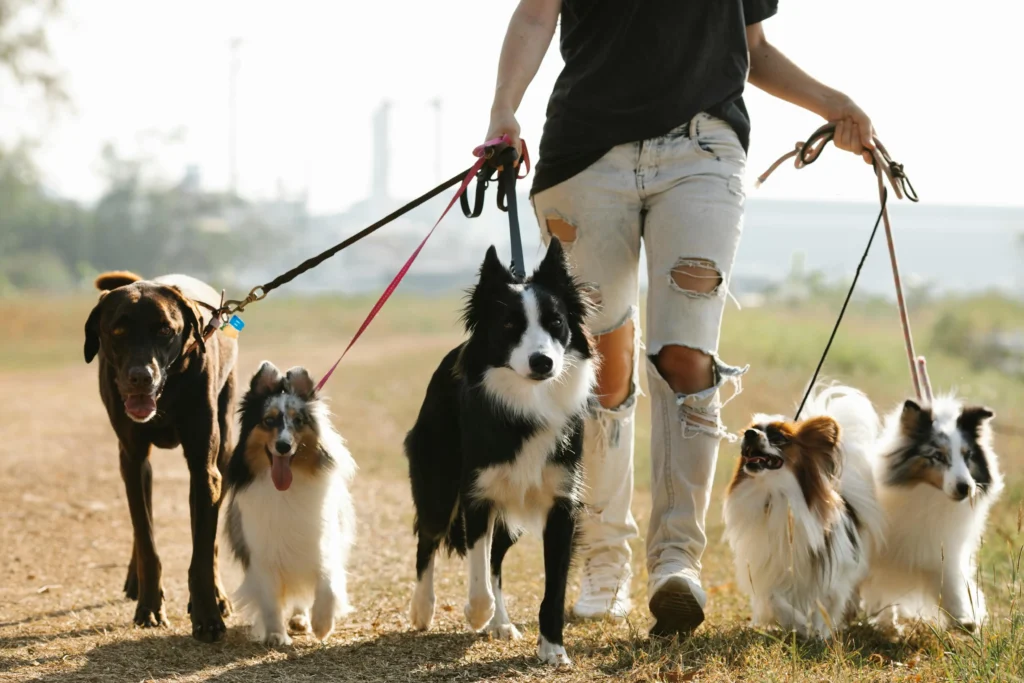
The Importance of Dog Park and Recreation Laws
Dog park and recreation laws serve several key purposes:
- Balancing Access and Safety: These regulations aim to create a balance between providing opportunities for dog socialization and ensuring the safety of all park users, both canine and human.
- Promoting Responsible Ownership: Regulations encourage responsible dog owners to ensure their dogs are well-behaved, socialized, and properly licensed and vaccinated before entering dog parks or recreation areas.
- Maintaining Park Conditions: Guidelines promote responsible waste management and minimizing damage to park facilities by dogs.
- Fostering a Positive Dog Park Experience: Clear rules contribute to a more enjoyable and positive experience for everyone using dog parks and recreation areas.
Understanding Dog Park and Recreation Laws in Louisiana
Louisiana doesn’t have a single, statewide law governing dog parks and recreation areas. The authority to regulate dog access and behavior falls on individual parishes and municipalities. Here’s what to expect:
- Local Ordinances: Most parishes and municipalities in Louisiana have ordinances outlining regulations for dog parks and recreation areas. These can vary significantly, so research the specific rules for your desired location.
- Leash Laws and Off-Leash Areas: Some parks might allow off-leash areas designated specifically for dog parks, while others might require dogs to be leashed at all times.
- Permit Requirements: Some dog parks might require a permit for access. These permits often involve proof of licensing, vaccination records, and potential spaying/neutering confirmation.
- Breed Restrictions: While uncommon, some dog parks might have breed restrictions based on size or potential temperament concerns.
Finding Dog Park and Recreation Area Ordinances
Since Louisiana lacks a centralized law, here’s how to find dog park and recreation area ordinances in your area:
- Parish or Municipal Website: Most parish or municipal websites have sections dedicated to parks and recreation or codes and ordinances. Search for keywords like “dog parks,” “dog regulations,” or “park rules.”
- Contact Parks and Recreation Department: Your local parks and recreation department can provide specific guidelines for dog access and behavior in their parks and recreation areas.
- Dog Park Signage: Many dog parks have signage posted at the entrance outlining the specific rules and regulations for using the facility.
General Considerations for Dog Park Etiquette
Before You Go:
- Ensure Your Dog is Up-to-Date on Vaccinations: Protect your dog and others by ensuring their vaccinations are current before entering a dog park.
- Consider Your Dog’s Temperament: Is your dog well-socialized and comfortable around other dogs? Assess their suitability for a dog park environment.
- Carry Waste Bags and Leash: Always be prepared to clean up after your dog and have a leash readily available for when entering or exiting the off-leash area.
While at the Dog Park:
- Maintain Supervision: Never leave your dog unattended at a dog park. Responsible supervision is crucial.
- Respect Other Park Users: Be mindful of other dogs and their owners. If your dog exhibits any aggressive behavior, remove them from the situation.
- Clean Up After Your Dog: Promptly dispose of waste using designated waste bins. This helps maintain a clean and safe environment for everyone.
Dog Food and Nutrition Laws in Louisiana
Louisiana, a state known for its vibrant culture and irresistible cuisine, also boasts a large population of cherished canine companions. As a responsible dog owner, providing your furry friend with a nutritious and balanced diet is paramount. This guide explores dog food and nutrition in Louisiana, focusing on the legal landscape and best practices for ensuring your dog thrives.

The Importance of Dog Food and Nutrition
A healthy diet plays a crucial role in a dog’s overall well-being. Proper nutrition impacts everything from energy levels and coat health to immune function and disease prevention. Understanding dog food and nutrition is essential for responsible pet ownership.
What Laws Govern Dog Food in Louisiana?
Unlike some states, Louisiana doesn’t have specific laws directly regulating dog food sales or ingredients. However, several federal regulations play a significant role:
- The Federal Food, Drug, and Cosmetic Act (FD&C Act): This federal law, enforced by the US Food and Drug Administration (FDA), establishes safety standards for animal food, including dog food. The FDA can take action against manufacturers of dog food deemed adulterated, misbranded, or unsafe for consumption.
- AAFCO (Association of American Feed Control Officials) Guidelines: While not legally binding, AAFCO establishes nutritional guidelines for dog food, outlining essential nutrients and labeling requirements. Most reputable dog food manufacturers formulate their products to meet AAFCO standards.
Choosing the Right Dog Food for Your Pup
With a vast array of dog food options available, selecting the right one for your dog requires consideration of several factors:
- Age and Life Stage: Nutritional needs vary throughout a dog’s life. Puppy, adult, and senior dog formulas cater to specific needs at each stage.
- Breed and Size: Larger breeds might require different nutrients compared to smaller dogs. Consider breed-specific formulas if available.
- Activity Level: Highly active dogs have higher energy demands and might benefit from food formulated for active lifestyles.
- Health Considerations: If your dog has any health concerns, consult your veterinarian for recommendations on a suitable dietary plan.
Reputable Dog Food Sources in Louisiana
Here are some resources to help you find high-quality dog food in Louisiana:
- Local Pet Stores: Specialty pet stores often have knowledgeable staff who can assist you in choosing the right dog food for your canine companion.
- Veterinarian Recommendations: Your veterinarian can provide guidance on appropriate dog food options based on your dog’s individual needs.
- Online Retailers: Several reputable online retailers offer a wide variety of dog food brands. Do your research and prioritize reputable sources.
Responsible Dog Food Practices
While no specific laws dictate dog food choices in Louisiana, responsible dog ownership encompasses these practices:
- Read Dog Food Labels Carefully: Pay attention to the guaranteed analysis, ingredients list, and feeding instructions on the dog food label.
- Avoid Unbalanced Diets: Homemade diets might lack essential nutrients, so consult a veterinarian if considering a homemade diet for your dog.
- Maintain a Healthy Weight: Monitor your dog’s weight and adjust their food intake as needed to prevent obesity, a significant health concern for dogs.
- Consult Your Veterinarian: Discuss your dog’s nutritional needs with your veterinarian during regular checkups. They can provide personalized recommendations based on your dog’s health and lifestyle.
Additional Considerations for Dog Nutrition in Louisiana
- Fresh Water Access: Ensure your dog has access to clean, fresh water at all times. This is crucial for their overall health and hydration.
- Treats in Moderation: Treats are a delightful part of dog ownership, but use them sparingly to avoid weight gain and digestive issues. Choose healthy treats like fruits, vegetables, or commercially available healthy dog treats.
- Avoiding Table Scraps: Human food can be unhealthy for dogs and disrupt their balanced diet. Resist the urge to share your meals with your furry friend.
Benefits of Proper Dog Nutrition
Providing your dog with a balanced and nutritious diet offers numerous advantages:
- Improved Overall Health: Proper nutrition strengthens the immune system, promotes healthy digestion, and supports good skin and coat health.
- Increased Energy Levels: A diet meeting your dog’s energy needs keeps them active and engaged in play and exercise.
- Weight Management: By providing the right amount of calories and nutrients, you can help your dog maintain a healthy weight, reducing the risk of obesity-related health problems.
- Enhanced Lifespan: A healthy diet contributes to a longer and healthier life for your canine companion.
Dog Health and Veterinary Care Laws in Louisiana
Louisiana, a state known for its infectious joie de vivre and rich cultural heritage, is home to many devoted dog owners. Providing your furry friend with proper veterinary care is fundamental to ensuring their health and well-being. This guide delves into dog health and veterinary care laws in Louisiana, empowering you to make informed decisions regarding your dog’s healthcare.

The Importance of Dog Health and Veterinary Care Laws
Dog health and veterinary care laws serve several key purposes:
- Protecting Animal Welfare: These regulations aim to ensure dogs receive necessary veterinary care to prevent and treat illnesses, promoting their overall well-being.
- Ensuring Veterinary Standards: Licensing requirements guarantee that veterinarians providing care to your dog meet specific educational and experience qualifications.
- Protecting Public Health: Vaccination mandates help control the spread of diseases among dogs and potentially zoonotic diseases transmissible to humans.
- Promoting Responsible Ownership: Laws encourage responsible pet ownership by emphasizing the importance of preventive veterinary care and addressing animal neglect or cruelty.
Understanding Dog Health and Veterinary Care Laws in Louisiana
Louisiana doesn’t have a single, comprehensive law governing dog health and veterinary care. Here’s a breakdown of key points:
- Veterinary Licensing: The Louisiana State Board of Veterinary Medical Examiners (LSBVM) licenses veterinarians in the state. All veterinarians providing medical care to dogs must be licensed by the LSBVM. You can verify a veterinarian’s license on the LSBVM website
- Rabies Vaccination Requirements: Louisiana law mandates rabies vaccination for all dogs four months of age and older. Vaccination must be repeated at regular intervals as specified by the vaccine manufacturer.
- Animal Cruelty Laws: Louisiana has laws against animal cruelty, including neglect and failure to provide necessary veterinary care. These laws are enforced by local animal control agencies.
Additional Considerations for Dog Health and Veterinary Care
While specific laws might not dictate every aspect of dog health, responsible ownership involves these practices:
- Schedule Regular Checkups: Routine veterinary checkups allow for early detection and treatment of potential health issues, promoting preventive care.
- Vaccinations Beyond Rabies: Discuss additional vaccinations recommended for your dog based on their age, lifestyle, and potential risk factors with your veterinarian. These might include vaccinations for distemper, parvovirus, bordetella (kennel cough), and leptospirosis.
- Parasite Prevention: Regular parasite prevention medication helps safeguard your dog against internal and external parasites like fleas, ticks, heartworms, and intestinal worms.
- Microchipping: Microchipping significantly increases the chances of your dog being reunited with you if lost. Microchips are tiny implants inserted under the skin containing your contact information.
Benefits of Proper Dog Health and Veterinary Care
Providing your dog with proper veterinary care offers numerous advantages:
- Early Detection and Treatment of Disease: Regular checkups and preventive care can identify potential health problems early, leading to more effective treatment and improved outcomes.
- A Longer and Healthier Life: Proper veterinary care promotes your dog’s overall health and well-being, contributing to a longer and happier life.
- Reduced Risk of Transmission: Vaccinations protect your dog from preventable diseases and help control the spread of these diseases to other animals and potentially humans.
- Peace of Mind: Knowing your dog is receiving the necessary care provides peace of mind and allows you to focus on enjoying your furry friend’s companionship.
Dog Identification and Microchipping Laws in Louisiana
Louisiana, a state brimming with joie de vivre and a rich cultural tapestry, welcomes not just residents but also their cherished canine companions. Ensuring your dog is properly identified is crucial for a happy reunion if they ever get lost. This guide explores dog identification and microchipping laws in Louisiana, empowering you to make informed decisions regarding your furry friend’s safety.
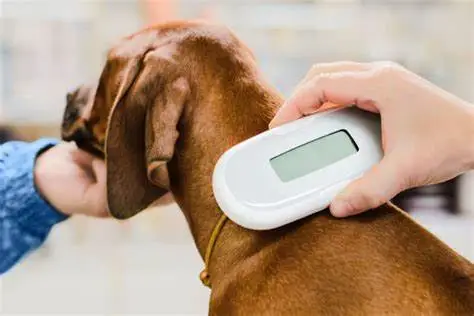
The Importance of Dog Identification
Proper dog identification plays a vital role in ensuring your dog’s safe return if they ever become lost or separated from you. Identification allows animal control officers and shelters to quickly locate the owner and reunite them with their beloved pet.
Dog Identification Laws in Louisiana
While Louisiana doesn’t mandate a specific form of identification for dogs, some legal considerations and best practices exist:
- Licensing: While not mandatory statewide, some parishes or municipalities in Louisiana might require dog licensing. Licensing typically involves registering your dog with the local parish or municipality and obtaining a license tag. Contact your local animal control office to check for any licensing requirements in your area.
- Collar and ID Tag: Even in the absence of mandatory licensing, a collar and ID tag are essential forms of dog identification. The ID tag should include your dog’s name, your name, and your contact information (phone number and/or address).
The Benefits of Microchipping Your Dog
Microchipping offers a highly effective and permanent form of dog identification, surpassing the limitations of collars and ID tags:
- Permanence: Microchips are tiny implants inserted under your dog’s skin and remain functional throughout their life, unlike collars and tags that can fall off or become unreadable.
- Universally Scannable: Microchips can be scanned by animal shelters and veterinary clinics nationwide, increasing the chances of reuniting lost dogs with their owners, regardless of location.
- Holds More Information: Microchips can store additional information beyond basic contact details, such as medical history or ownership information.
Microchipping Laws in Louisiana
Louisiana doesn’t have any laws mandating microchipping for dogs. However, microchipping offers significant advantages for responsible dog ownership:
- Peace of Mind: Knowing your dog is microchipped provides peace of mind, especially for adventurous pups or those prone to escaping.
- Increased Recovery Rates: Lost dogs with microchips have a significantly higher chance of being reunited with their owners compared to those without.
- Travel Considerations: Some states or countries might have microchipping requirements for dogs traveling across borders.
Finding Reputable Microchipping Services in Louisiana
Here are some resources to help you find reputable microchipping services for your dog in Louisiana:
- Veterinarians: Most veterinary clinics offer microchipping services.
- Animal Shelters: Some animal shelters might offer microchipping at low-cost or no-cost clinics.
- Rescue Organizations: Rescue organizations might partner with veterinarians to offer microchipping services for adopted dogs.
The Microchipping Process
Microchipping your dog is a simple and safe procedure:
- The Chip: The microchip is a tiny rice-sized capsule containing a unique identification number.
- The Implantation: A veterinarian typically implants the microchip using a sterile needle under your dog’s skin, usually between the shoulder blades.
- Registration: Once implanted, register the microchip with a reputable microchip registry database. This database links the microchip number to your contact information, allowing shelters and veterinary clinics to identify the owner when scanning the microchip.
Additional Considerations for Dog Identification
Here are some additional tips for ensuring your dog’s safe return if they get lost:
- Keep Your Contact Information Updated: Ensure the information on your dog’s ID tag and microchip registry is current, including your phone number and address.
- Engrave Your Contact Information on Your Dog’s Collar: Even if a collar and tag fall off, engraved information on the collar itself might still be visible and provide a way to contact you.
- Consider a GPS Tracking Collar: While not a replacement for microchipping, GPS tracking collars can provide real-time location information in case your dog gets lost.
Dog Breeding and Genetics Laws in Louisiana
Louisiana, a state pulsating with vibrant culture and irresistible cuisine, boasts a large population of cherished canine companions. If you’re considering welcoming a furry friend into your life through a breeder, understanding dog breeding and genetics laws in Louisiana is crucial. This guide delves into the legalities and responsible breeding practices to ensure an ethical and informed decision.

The Importance of Dog Breeding and Genetics Laws
Dog breeding and genetics laws serve several key purposes:
- Promoting Animal Welfare: These regulations aim to prevent unethical breeding practices that prioritize profit over the health and well-being of breeding dogs and puppies.
- Ensuring Responsible Breeding: Laws encourage responsible breeding practices that focus on preserving breed standards, minimizing genetic health problems, and prioritizing the physical and behavioral well-being of breeding dogs and their offspring.
- Consumer Protection: Some laws provide a level of consumer protection for individuals purchasing dogs from breeders.
Understanding Dog Breeding and Genetics Laws in Louisiana
Louisiana doesn’t have a comprehensive set of laws specifically governing dog breeding. Here’s a breakdown of key points:
- Absence of Mandatory Licensing: Unlike some states, Louisiana doesn’t require commercial dog breeders to obtain a state license. However, some parishes or municipalities might have local ordinances regulating commercial breeding kennels. It’s crucial to check with your local authorities for any specific regulations.
- USDA Licensing: For breeders selling dogs to pet stores or for resale, a USDA (United States Department of Agriculture) license is required under the Animal Welfare Act. This federal law establishes minimum care standards for breeding kennels involved in interstate commerce of dogs.
Finding Reputable Dog Breeders in Louisiana
While Louisiana lacks a state-level breeder licensing system, here are resources to help you find reputable breeders:
- American Kennel Club (AKC) Marketplace: https://marketplace.akc.org/ (Search for breeders by breed and location)
- Louisiana Kennel Club: While breeder listings might be limited, this resource might be a starting point ([invalid URL removed]).
- National Club Breeder Directories: Many national breed clubs maintain directories of reputable breeders who adhere to breed standards and ethical breeding practices.
Identifying Responsible Dog Breeders
When considering a breeder, look for these signs of responsible practices:
- Health Testing: Reputable breeders perform health testing on their breeding stock to minimize the risk of passing on genetic diseases to puppies.
- Proper Care and Socialization: Breeding dogs should be kept in clean, spacious kennels with access to exercise, socialization, and veterinary care.
- Transparency and Open Communication: Responsible breeders are transparent about their breeding practices, answer your questions openly, and allow you to visit their facilities.
- Focus on Breed Standards: Ethical breeders strive to maintain breed standards while prioritizing the health and temperament of breeding dogs and puppies.
Additional Considerations for Dog Breeding in Louisiana
- Breeder Contracts: A written contract outlining the terms of the sale, including breed information, health guarantees, and vaccination records, is crucial for consumer protection.
- Spaying/Neutering: Responsible breeders typically spay or neuter breeding dogs after retirement to prevent uncontrolled breeding and pet overpopulation.
The Importance of Responsible Breeding Practices
Choosing a responsible breeder offers numerous advantages:
- Reduced Risk of Genetic Health Problems: Health testing by reputable breeders helps minimize the risk of inheriting genetic diseases in puppies.
- Well-Socialized Puppies: Responsible breeders prioritize socialization during the crucial puppy development stage, leading to well-adjusted and confident dogs.
- Breed Standards: Ethical breeders strive to maintain breed standards, ensuring you get a dog that embodies the desired characteristics of the breed.
- Supporting Ethical Breeding: By choosing a responsible breeder, you contribute to the sustainable and ethical breeding of purebred dogs.
Alternatives to Dog Breeders
If you’re open to adopting a dog, here are some alternatives to consider:
- Animal Shelters and Rescue Organizations: Many shelters and rescues have wonderful dogs of all breeds, ages, and personalities in need of loving homes.
- Breed-Specific Rescues: Numerous breed-specific rescue organizations might have purebred dogs available for adoption.
Dog Environmental Impact Laws in Louisiana
Louisiana, a state known for its captivating bayous, majestic wetlands, and rich biodiversity, is also home to a significant population of cherished canine companions. While dogs bring joy and companionship to our lives, their presence can have an environmental impact. This guide explores dog ownership and environmental responsibility in Louisiana, empowering you to be a conscientious pet owner who minimizes your pup’s ecological footprint.

The Environmental Impact of Dogs
Dogs can leave an environmental mark in several ways:
- Waste Management: Dog waste left uncollected can pollute waterways, harm wildlife, and contribute to unpleasant odors.
- Water Consumption: Dogs require fresh water daily, adding to overall water usage.
- Food Production: Meat-based dog food production contributes to greenhouse gas emissions and resource utilization.
- Habitat Disruption: Off-leash dogs can disturb wildlife and sensitive ecosystems.
Understanding Dog Waste Management Laws in Louisiana
While Louisiana doesn’t have a single, statewide law governing dog waste management, most parishes and municipalities have ordinances in place. These typically require dog owners to:
- Always carry poop bags: Be prepared to clean up after your dog on walks and hikes.
- Dispose of waste properly: Deposit waste in designated waste bins or dispose of it in a sanitary manner that doesn’t contaminate waterways.
- Fines for non-compliance: Failure to clean up after your dog might result in fines.
Finding Dog Waste Disposal Options in Louisiana
Here are some resources to help you find dog waste disposal options in your area:
- Local Parks and Recreation Department Websites: Many websites list locations of dog waste disposal bins in parks and recreation areas.
- Pet Waste Disposal Bags: Invest in biodegradable pet waste disposal bags for convenient and responsible waste management.
Minimizing Your Dog’s Environmental Impact
Beyond legal requirements, here are ways to be an eco-conscious dog owner in Louisiana:
- Sustainable Dog Food Options: Consider exploring more sustainable dog food options, such as those featuring insect protein or plant-based alternatives.
- Water Conservation: Use a water bowl designed to minimize spills and encourage your dog to drink only when needed.
- Leave No Trace: When enjoying the outdoors with your dog, practice Leave No Trace principles to minimize your impact on the environment.
- Support Eco-Friendly Dog Products: Look for eco-friendly dog toys made from recycled materials and biodegradable cleaning products for pet messes.
Dog Ownership and Louisiana’s Ecosystems
Louisiana boasts diverse ecosystems, from vibrant wetlands to pristine beaches. Here’s how to minimize your dog’s impact on these sensitive areas:
- Respect Leash Laws: Always adhere to leash laws in parks and natural areas. Off-leash dogs can disrupt wildlife habitats and nesting grounds.
- Pick Up After Your Dog: This is especially crucial in sensitive ecosystems where dog waste can have a magnified impact on water quality and wildlife populations.
- Educate Yourself: Learn about the local wildlife and ecosystems in your area. Understanding the delicate balance allows you to make informed choices about where to take your dog and how to minimize their impact.
Benefits of Responsible Dog Ownership
Being a responsible dog owner who minimizes their pup’s environmental impact offers numerous benefits:
- Protecting Louisiana’s Ecosystems: Your efforts contribute to the preservation of Louisiana’s unique and ecologically diverse landscapes.
- Promoting Responsible Pet Ownership: By setting a good example, you inspire others to be mindful of their dog’s environmental footprint.
- Building a Positive Dog-Friendly Image: Responsible dog ownership helps maintain positive community attitudes towards dogs and allows for continued access to dog-friendly spaces.
Dog Behavioural Training Laws in Louisiana
Louisiana, a state pulsating with vibrant culture and a rich musical heritage, is home to countless dog lovers and their furry companions. Training your dog for good behavior strengthens your bond, promotes safety, and creates a more harmonious living environment. This guide explores dog training laws and responsible ownership practices in Louisiana, empowering you to raise a well-behaved canine citizen.
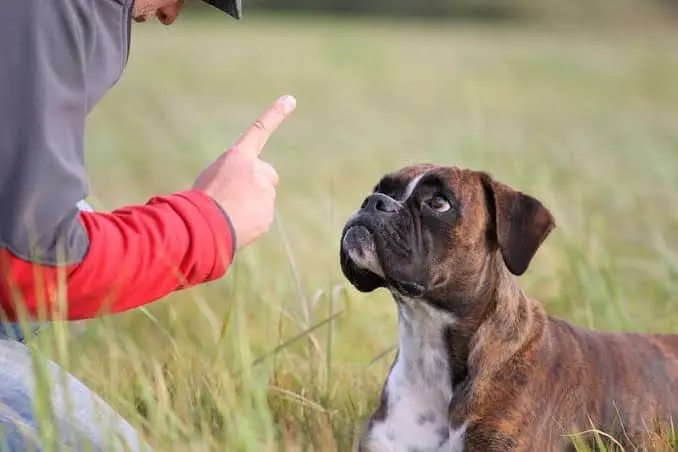
The Importance of Dog Training Laws
While Louisiana doesn’t have specific laws mandating dog training, these regulations indirectly promote responsible dog ownership through:
- Leash Laws: These laws requiring dogs to be leashed in public spaces encourage control and minimize the risk of dog bites or attacks.
- Dangerous Dog Laws: Regulations aimed at addressing aggressive dog behavior often involve mandatory training requirements for dogs deemed dangerous.
Understanding Dog Training Considerations in Louisiana
While there are no mandated training programs, here’s what to consider for effective dog training in Louisiana:
- Positive Reinforcement Training: This reward-based approach is widely recommended by professional trainers and prioritizes building a positive relationship with your dog.
- Finding a Qualified Trainer: Look for trainers certified by reputable organizations like the Certification Council for Professional Dog Trainers (CCPDT).
- Addressing Specific Behavioral Issues: If your dog exhibits specific behavior problems like aggression, barking, or chewing, consult a professional trainer to develop a personalized training plan.
Benefits of Professional Dog Training
Investing in professional dog training offers numerous advantages:
- Improved Communication: Training strengthens the bond between you and your dog, fostering better understanding and communication.
- Reduced Behavioral Problems: Addressing behavioral issues early on prevents escalation and promotes a more manageable and enjoyable canine companion.
- Enhanced Safety: A well-trained dog is less likely to engage in unwanted behaviors that could lead to safety concerns for you, your dog, or others.
- Greater Enjoyment: A well-behaved dog allows for greater enjoyment of shared activities and fosters a more harmonious living environment.
Finding Reputable Dog Trainers in Louisiana
Here are some resources to help you find reputable dog trainers in Louisiana:
- The Association of Professional Dog Trainers (APDT):Searchable database of trainers by location
- The Certification Council for Professional Dog Trainers (CCPDT): Searchable directory of certified trainers
- Local Animal Shelters and Rescue Organizations: Many shelters and rescues offer training classes or can recommend reputable trainers in your area.
Additional Considerations for Responsible Dog Ownership
Beyond formal training, responsible dog ownership encompasses these practices:
- Socialization: Socialize your dog from a young age to ensure they are comfortable interacting with other dogs, people, and novel environments.
- Exercise: Provide your dog with regular exercise to meet their physical and mental needs, helping prevent boredom and destructive behaviors.
- Mental Stimulation: Engage your dog’s mind with interactive toys, puzzle feeders, and training exercises to prevent boredom and promote good behavior.
- Consistent Leadership: Provide clear and consistent leadership for your dog, establishing boundaries and expectations.
Louisiana Laws You Should Be Aware of as a Dog Owner
While no specific training laws exist, here are some Louisiana laws relevant to dog ownership:
- Leash Laws: Most parishes and municipalities have leash laws requiring dogs to be leashed in public spaces.
- Dangerous Dog Laws: These laws vary by parish or municipality but typically define criteria for designating a dog as “dangerous” and establish requirements for handling and training such dogs.
- Animal Cruelty Laws: Louisiana has laws against animal cruelty, which includes neglecting to provide proper training that could address potentially dangerous behaviors.
Dog Protection and Rescue Laws in Louisiana
Louisiana, a state brimming with joie de vivre and a rich cultural tapestry, is home to countless devoted dog owners. Ensuring your dog’s safety and well-being is paramount. This guide delves into dog protection and rescue laws in Louisiana, empowering you to navigate situations where your dog might be at risk or in need of assistance.

The Importance of Dog Protection and Rescue Laws
Dog protection and rescue laws play a crucial role in safeguarding canine companions:
- Preventing Cruelty: These laws aim to prevent animal cruelty and neglect, promoting the humane treatment of all dogs.
- Ensuring Minimum Care Standards: Regulations establish minimum care standards for dogs, including access to food, water, shelter, and veterinary care.
- Promoting Responsible Ownership: Laws encourage responsible ownership practices that prioritize the safety and well-being of dogs.
- Facilitating Rescue and Rehoming: Regulations govern animal shelters and rescue organizations, ensuring proper care for lost, abandoned, or surrendered dogs and facilitating their rehoming.
Understanding Dog Protection Laws in Louisiana
Louisiana has laws in place to protect dogs from cruelty and neglect:
- Louisiana Revised Statutes Title 14, Chapter 7: This section of the Louisiana Revised Statutes outlines animal cruelty and neglect laws.
- Louisiana Society for the Prevention of Cruelty to Animals (LaSPCA): This organization works to enforce animal cruelty laws and advocate for animal welfare.
Here are some key points regarding dog protection in Louisiana:
- Definition of Cruelty: Cruelty can encompass acts like denying food or water, not providing adequate shelter, inflicting physical harm, or abandoning a dog.
- Reporting Animal Cruelty: If you suspect animal cruelty, you are legally obligated to report it to your local animal control agency or the LaSPCA.
- Penalties for Cruelty: Animal cruelty is a misdemeanor crime in Louisiana, punishable by fines and/or jail time.
Understanding Dog Rescue Laws in Louisiana
Louisiana has regulations governing animal shelters and rescue organizations:
- Licensing Requirements: Shelters and rescues typically require licensing from the Louisiana Department of Agriculture and Forestry (LDAF).
- Minimum Care Standards: These regulations establish minimum care standards for animals housed in shelters and rescues, ensuring their well-being.
- Adoption Procedures: Shelters and rescues have established procedures for adopting dogs, which might involve screening potential adopters and ensuring a good fit for the dog.
Finding Help for Your Dog in Louisiana
If you need help with your dog in Louisiana, here are some resources:
- Local Animal Control Agencies: These agencies respond to animal cruelty complaints, pick up stray dogs, and might offer resources for pet owners in need.
- Louisiana SPCA: The LaSPCA offers various services, including cruelty investigation, adoption programs, and educational resources.
- National Shelters and Rescue Organizations: Several national organizations might have resources or affiliate shelters in Louisiana to assist you.
Additional Considerations for Dog Protection and Rescue
Here’s how you can contribute to dog protection and rescue efforts in Louisiana:
- Report Animal Cruelty: Don’t hesitate to report suspected cruelty. Your intervention could save a dog’s life.
- Support Animal Shelters and Rescues: Consider volunteering your time, donating resources, or adopting a dog in need from a shelter or rescue.
- Responsible Ownership: Be a responsible dog owner by providing proper care, licensing your dog, and keeping them safe.
- Microchipping: Microchipping your dog significantly increases the chances of reuniting them with you if they get lost.
Benefits of Dog Protection and Rescue
Dog protection and rescue efforts offer numerous advantages:
- Reduced Animal Cruelty: Stronger enforcement of animal cruelty laws deters abusers and protects countless dogs.
- Increased Rescue Rates: Effective rescue organizations provide safe havens for lost, abandoned, or surrendered dogs and facilitate their rehoming.
- Happier and Healthier Dogs: Rescued dogs receive a chance at a loving and safe forever home where they can thrive.
- Stronger Communities: Protecting and rescuing dogs fosters a more compassionate and responsible community towards animal welfare.
Dog Entertainment and Work Laws in Louisiana
Louisiana, a state pulsating with vibrant culture and a rich musical heritage, welcomes not only residents but also their cherished canine companions. Whether your dog enjoys the spotlight or thrives on a working role, understanding dog entertainment and work laws in Louisiana allows you to navigate these activities responsibly. This guide delves into the legalities and best practices for ensuring your dog’s safety and well-being in these unique settings.

The Evolving Landscape of Dog Entertainment and Work
Dogs are increasingly participating in various activities beyond traditional pet ownership:
- Dog Entertainment: Dogs might be featured in movies, television shows, commercials, or even participate in dog shows or competitions.
- Working Dogs: Canines play vital roles in various fields, including assistance work (seeing-eye dogs, service dogs), law enforcement, search and rescue, or therapy work.
Understanding Dog Entertainment Laws in Louisiana
Louisiana doesn’t have specific laws solely governing dog entertainment. However, some general regulations and best practices apply:
- The Animal Welfare Act (AWA): This federal law, enforced by the USDA, establishes minimum care standards for animals used in exhibition, transportation, research, testing, or breeding. While not all dog entertainment activities fall under these categories, the AWA emphasizes ensuring animal welfare.
- American Humane Certified™: This certification program recognizes productions that adhere to animal welfare guidelines during filming or theatrical productions. Seeking opportunities with this certification demonstrates a commitment to responsible dog handling.
- Breed-Specific Considerations: Certain dog breeds might have limitations or restrictions based on their physical characteristics or temperament.
Finding Reputable Dog Entertainment Opportunities in Louisiana
Here’s how to find reputable dog entertainment opportunities in Louisiana:
- Production Companies with American Humane Certification: Look for productions that prioritize animal welfare through this certification.
- Professional Animal Trainers: Work with experienced trainers who prioritize the dog’s safety and well-being throughout the entertainment process.
- Focus on Short, Positive Experiences: For dog shows or competitions, ensure the activities are age-appropriate and prioritize positive reinforcement for the dog.
The Importance of Responsible Dog Entertainment Practices
Responsible dog entertainment practices are crucial for ensuring your dog’s safety and well-being:
- Prioritize the Dog’s Comfort: Never force your dog to participate in activities they dislike or find stressful.
- Provide Adequate Rest and Breaks: Schedule breaks for your dog throughout filming or training sessions to prevent exhaustion or overheating.
- Ensure Proper Training: Work with trainers who prioritize positive reinforcement methods and prioritize the dog’s well-being.
- Age and Health Considerations: Activities should be appropriate for your dog’s age, breed, and physical health.
Understanding Dog Work Laws in Louisiana
Louisiana doesn’t have a comprehensive set of laws specifically governing dog work. However, some general regulations and best practices apply:
- The Americans with Disabilities Act (ADA): This federal law protects the rights of individuals with disabilities to use service animals in public places and workplaces. Understanding ADA guidelines is crucial if your dog performs service work.
- State Licensing Requirements: Some states might require licensing or certifications for working dogs, particularly in specific fields like law enforcement or search and rescue. Research any potential state-level requirements in Louisiana.
- Breed Suitability: Certain breeds are better suited for specific working roles due to their physical attributes and trainability.
Finding Reputable Dog Work Opportunities in Louisiana
Here are some resources for finding dog work opportunities in Louisiana:
- National Organizations: Organizations like Assistance Dogs International (ADI) or the National Association of Search and Rescue (NASAR) might have resources for finding working dog placements.
- Local Law Enforcement or Search and Rescue Agencies: These agencies might have programs that utilize trained dogs.
- Breed-Specific Working Dog Associations: Associations dedicated to specific working dog breeds might have information on potential placements.
The Importance of Responsible Dog Work Practices
Responsible dog work practices are vital for ensuring your dog’s safety and effectiveness:
- Proper Training: Working dogs require specialized training to perform their duties safely and effectively.
- Physical and Mental Fitness: Working dogs need rigorous training and conditioning to maintain the physical and mental stamina required for their roles.
- Veterinary Care: Regular veterinary checkups and preventive care are crucial for working dogs to ensure their health and well-being.
- Retirement Plans: Have a plan for your working dog’s retirement when they are no longer able to perform their duties effectively.
Dog Technology and Innovation Laws in Louisiana
Louisiana, a state brimming with innovation and a rich cultural tapestry, welcomes not only residents but also their cherished canine companions. The world of pet technology (pet tech) is rapidly evolving, offering exciting possibilities for dog owners. This guide delves into the legal landscape surrounding dog tech and health innovations in Louisiana, empowering you to navigate these advancements responsibly.

The Rise of Dog Technology
Dog technology encompasses various products and services designed to enhance the lives of dogs and their owners. Here are some prominent areas of innovation:
- Wearable Tech: Smart collars and trackers monitor your dog’s activity level, location, and even vital signs.
- Remote Training Devices: These tools allow for remote training and communication with your dog.
- Interactive Toys and Games: Tech-enabled toys stimulate your dog’s mind and encourage them to play independently.
- Telehealth for Pets: Telehealth consultations with veterinarians offer convenient access to veterinary care.
- DNA Testing and Personalized Health Solutions: DNA testing unlocks insights into your dog’s breed, health risks, and tailored dietary or wellness plans.
Understanding Dog Technology Laws in Louisiana
Louisiana doesn’t currently have specific laws regulating the use of pet tech products. However, some general considerations and best practices apply:
- Product Safety: While federal regulations exist for pet product safety, it’s crucial to research the product’s reputation and safety certifications before using it on your dog.
- Data Privacy: Be mindful of the data collected by pet tech devices. Understand how this data is stored, used, and protected by the manufacturer.
- Veterinary Consultation: Consult your veterinarian before using any pet tech product, especially those that claim to monitor health or provide medical advice.
Finding Reputable Dog Technology Products in Louisiana
Here are some tips for finding reputable dog tech products in Louisiana:
- Research Online: Read reviews and compare features before purchasing any pet tech device.
- Look for Established Brands: Choose products from established brands with a reputation for quality and safety.
- Ask Your Veterinarian: Your veterinarian might recommend trusted pet tech products or resources.
Utilizing Dog Technology Responsibly
Responsible use of dog technology is crucial for your pet’s well-being:
- Focus on Enrichment, Not Replacement: Don’t rely solely on pet tech to replace essential walks, playtime, and social interaction for your dog.
- Monitor Data and Behavior: Actively monitor data collected by pet tech devices and consult your veterinarian if you notice any concerning trends.
- Ensure Proper Fit and Function: Ensure wearable tech devices fit comfortably and function properly to avoid any discomfort or injury to your dog.
The Future of Dog Health Technology in Louisiana
The future of dog health technology holds exciting possibilities:
- Advanced Diagnostics: Innovations in pet diagnostics might allow for earlier detection and treatment of canine diseases.
- Personalized Nutrition: DNA testing and gut microbiome analysis could pave the way for personalized nutrition plans for dogs.
- Remote Monitoring and Telehealth: Advancements in telehealth and remote monitoring could revolutionize access to veterinary care for dogs in rural areas of Louisiana.
Understanding Regulations for Dog Health Innovations
While Louisiana doesn’t have specific laws governing dog health innovations, some general considerations are essential:
- FDA Regulations: The Food and Drug Administration (FDA) regulates animal drugs and medical devices. Ensure any health innovation claims are FDA-approved.
- Veterinarian Involvement: Always consult your veterinarian before utilizing any new health technology on your dog.
Supporting Responsible Dog Health Innovation
Here’s how you can contribute to responsible dog health innovation:
- Stay Informed: Educate yourself about new dog health technologies and advancements.
- Choose Reputable Companies: Support companies committed to ethical research, product safety, and veterinary collaboration.
- Share Your Feedback: Provide feedback to companies and veterinary professionals about your experiences with dog health technology.
Human Coexistence Laws in Louisiana
Louisiana, a state pulsating with joie de vivre and a vibrant cultural tapestry, is home to countless dog lovers. Fostering a strong bond between humans and dogs enriches lives on both ends. This guide explores human coexistence laws in Louisiana, empowering you to navigate legalities and create a harmonious living environment for you and your canine companion.

Understanding Human Coexistence with Dogs
Human coexistence with dogs goes beyond simply sharing a roof. It’s about fostering a mutually beneficial relationship built on respect, understanding, and responsible ownership. Here are key aspects:
- Socialization: Socializing your dog from a young age ensures they are comfortable interacting with people and other dogs, promoting a more positive coexistence in public spaces.
- Training: Investing in positive reinforcement training strengthens communication and builds a stronger bond between you and your dog.
- Responsible Ownership: This includes providing proper care, licensing your dog, and abiding by leash laws for the safety and well-being of both humans and dogs.
While Louisiana Doesn’t Have Specific Coexistence Laws
Louisiana doesn’t have a single, comprehensive set of laws solely focused on promoting human-dog coexistence. However, several existing regulations indirectly contribute to a more harmonious environment:
- Leash Laws: Most parishes and municipalities have leash laws requiring dogs to be leashed in public spaces. This promotes public safety and minimizes the risk of dog bites or attacks.
- Dangerous Dog Laws: These laws aim to address aggressive dog behavior and often involve training requirements for designated “dangerous” dogs. This protects both humans and other dogs from potential harm.
- Animal Control Ordinances: These ordinances might address issues like excessive barking or nuisance dogs, creating a more peaceful environment for human-dog cohabitation.
Fostering Human-Dog Coexistence in Louisiana
Beyond legal requirements, here are ways to promote a positive co-living experience:
- Dog-Friendly Establishments: Louisiana boasts numerous dog-friendly restaurants, parks, and businesses. Taking advantage of these options strengthens the human-dog bond and allows for shared experiences.
- Community Dog Events: Participating in dog-friendly events like walks, agility courses, or social gatherings fosters positive interactions between dogs and people while building a sense of community.
- Responsible Dog Ownership Education: Educating yourself and others about responsible dog ownership practices fosters a more positive environment for human-dog coexistence.
Benefits of Strong Human-Dog Coexistence
A strong human-dog bond offers numerous advantages:
- Reduced Behavioral Problems: Well-trained and socialized dogs are less likely to exhibit behavioral issues, leading to a more peaceful co-living environment.
- Improved Physical and Mental Health: Dog ownership promotes physical activity and can have positive mental health benefits for both humans and dogs.
- Enhanced Social Interaction: Dogs can be social catalysts, facilitating interaction with other dog owners and strengthening community bonds.
- Greater Overall Well-being: A strong human-dog bond enriches lives, fostering companionship, loyalty, and unconditional love.
Considerations for Responsible Human-Dog Coexistence
Responsible human-dog coexistence requires thoughtful considerations:
- Breed Selection: Choose a dog breed that aligns with your lifestyle and living space.
- Meeting Needs: Provide your dog with adequate exercise, playtime, mental stimulation, and proper training to prevent boredom and destructive behaviors.
- Respecting Boundaries: Teach children how to interact respectfully with dogs to ensure safety and positive experiences.
- Cleaning Up After Your Dog: Always dispose of dog waste properly, maintaining a clean environment for everyone.
Other Relevant Dog Laws in Louisiana
Beyond the core areas explored previously, here’s a detailed breakdown of other relevant dog laws and considerations in Louisiana:
Canine Good Citizen (CGC) Programs and Legal Benefits in Louisiana
- Canine Good Citizen (CGC) Programs: These programs provide standardized training to teach dogs basic obedience skills and good manners in public settings. While participation isn’t mandatory by law, some parishes or municipalities might offer incentives for CGC-certified dogs, such as:
- Reduced Dog Licensing Fees
- Exemptions from Breed-Specific Restrictions in Certain Housing Complexes
- Participation in Dog-Friendly Events
Dog Insurance and Coverage Laws in Louisiana
- Dog Insurance: While not mandated by law, dog insurance offers financial protection for veterinary care costs associated with accidents, illnesses, or surgeries. Louisiana doesn’t have specific regulations governing dog insurance policies. However, it’s crucial to choose a reputable insurer and carefully review policy details like coverage limits and exclusions.
Laws Regarding Dogs in Hot Cars and Animal Endangerment in Louisiana
- Animal Cruelty Laws: Louisiana Revised Statutes Title 14, Chapter 7, outlines animal cruelty and neglect laws. Leaving a dog unattended in a hot car can be considered animal cruelty, especially if it leads to heatstroke or death.
- Good Samaritan Laws: Louisiana has Good Samaritan laws that protect individuals who attempt to rescue a dog from a hot car in good faith, even if they have to break a window.
Legal Aspects of Dog Parks and Shared Spaces in Louisiana
- Leash Laws: Even in designated dog parks, leash laws might still apply for certain areas within the park. Always check signage and adhere to posted rules.
- Waste Removal: Dog owners are responsible for cleaning up after their dogs in dog parks and shared spaces.
- Aggressive Dog Behavior: If your dog exhibits aggressive behavior towards other dogs or people, you might be liable for any injuries or damage caused. It’s crucial to ensure your dog is properly socialized and trained before visiting dog parks.
Dog-Related Property Damage and Homeowner’s Insurance in Louisiana
- Homeowner’s Insurance: Most homeowner’s insurance policies cover dog-related property damage to your own property, with limitations and exclusions. However, it might not cover damage caused by your dog to someone else’s property.
- Liability for Dog Bites: Louisiana follows a strict liability rule for dog bites. This means dog owners are liable for any injuries or damages caused by their dog bite, regardless of the dog’s previous behavior.
Service and Working Dog Laws in Employment and Public Access in Louisiana
- Americans with Disabilities Act (ADA): This federal law protects the rights of individuals with disabilities to use service animals in public places and workplaces. Louisiana adheres to the ADA guidelines, ensuring service animals have access to most public spaces.
- State Regulations: Louisiana might have additional regulations regarding specific types of working dogs, such as those used by law enforcement or search and rescue teams. It’s advisable to research any potential state-level requirements.
Animal Welfare and Protection Laws Against Neglect and Abandonment in Louisiana
- Louisiana Revised Statutes Title 14, Chapter 7: This section outlines animal cruelty and neglect laws. Abandoning a dog or failing to provide them with adequate food, water, shelter, and veterinary care is considered animal cruelty.
- Louisiana SPCA (LaSPCA): This organization works to enforce animal cruelty laws and advocate for animal welfare. If you suspect animal cruelty, you are legally obligated to report it to your local animal control agency or the LaSPCA.
This comprehensive guide explored dog-related laws in Louisiana, empowering you to be a responsible and informed dog owner. Key points covered include training requirements, leash laws, dog park etiquette, and animal cruelty prevention. Understanding and complying with these laws ensures the safety and well-being of your dog, fosters harmonious human-canine coexistence, and protects the rights of both dogs and their owners. By following responsible dog ownership practices, you contribute to a more positive and safe environment for everyone in Louisiana.
FAQs
Are there any breed-specific restrictions in Louisiana?
Louisiana doesn’t have a statewide ban on any specific dog breeds. However, some municipalities or parishes might have breed restrictions in place. It’s crucial to check with your local animal control agency or homeowner’s association to understand any breed-specific regulations that might apply to your area.
Can I take my dog to restaurants in Louisiana?
Many restaurants in Louisiana are becoming increasingly dog-friendly. However, regulations regarding pets on patios or outdoor dining areas vary by establishment. It’s always best to call the restaurant in advance to inquire about their pet policy.
What are the microchipping laws in Louisiana?
Microchipping your dog isn’t mandatory by law in Louisiana. However, it’s highly recommended. A microchip significantly increases the chances of reuniting with your dog if they get lost. Some shelters or rescue organizations might require microchipping before adoption.
What happens if my dog bites someone in Louisiana?
Louisiana follows a strict liability rule for dog bites. This means dog owners are liable for any injuries or damages caused by their dog bite, regardless of the dog’s previous behavior. Homeowner’s insurance might not cover this liability, so consider purchasing additional dog bite insurance for extra protection.
Are there any laws regarding traveling with my dog in Louisiana?
There are no specific laws within Louisiana regarding traveling with your dog. However, some public transportation options might have restrictions on pet travel. If traveling out of state, be sure to research any rabies vaccination or health certificate requirements for your dog at your destination.

